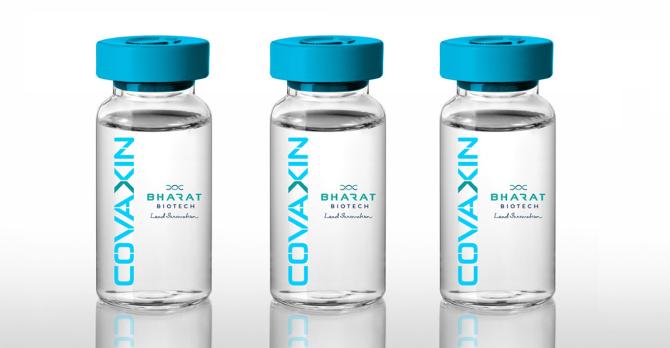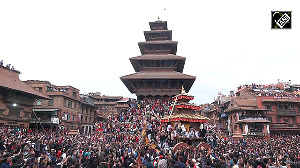Bharat Biotech is in the middle of conducting a phase 3 trial with 22,000 subjects, reports Sohini Das.

Indigenous vaccine candidate Covaxin, developed by the Hyderabad-based Bharat Biotech International, appeared to inch closer to an approval as its phase 1 clinical trial results showed a 'robust' immune response without any serious adverse events, the firm said in a research paper.
Bharat Biotech had recently sought an accelerated approval from the regulator based on phase 1 and phase 2 studies.
The company is in the middle of conducting a phase 3 trial with 22,000 subjects.
Serum Institute of India, which is partnering AstraZeneca and Oxford University for Covid vaccine, has also sought an emergency approval.
Pfizer-BioNTech too has applied for the same.

Only one serious adverse event was reported around August which was not found to be causally linked to the investigational product, Bharat Biotech said in the paper.
For the first time elaborating on its efforts, the company said that the phase 1 trial was conducted over 375 volunteers across 11 hospitals.
In an interim report, BBIL said all three vaccine formulations (different dosages) resulted in 'robust immune responses comparable to a panel of convalescent serum.'
In other words, the vaccine-induced responses were comparable to those observed in the convalescent serum collected from patients who had recovered from COVID-19.
In the group receiving 6 microgram dosage, one serious adverse event was reported.
'The participant was screened on July 25 and vaccinated on July 30. Five days later, the participant reported symptoms of COVID-19 and was found to be positive for SARS-CoV-2 (by a nucleic acid test). The symptoms were mild in nature, but the patient was admitted to the hospital on August 15,' the firm said in the report.
It added that the participant was discharged on August 22 following a negative nucleic acid result.
"The event was not causally associated with the vaccine, BBIL said.

Most of the adverse events after the first vaccination were predominantly mild or moderate in severity and were 'resolved rapidly' without any prescribed medication.
Covaxin is being tested in two doses given around 28 days apart.
After the second shot was administered, pain at the injection site was the most common local adverse event.
As for the two dosage arms, one 3 microgram and another 6 microgram, no significant differences were noticed among volunteers.
All vaccinated individuals had neutralising responses to Sars-CoV-2 strains.
This is, however, an interim report and BBIL said it is not reporting any data on the persistence of vaccine-induced antibody responses or safety outcomes.
The results reported do not permit efficacy assessments, it said adding that the evaluation of safety outcomes requires more extensive phase 3 clinical trials.
Krishna Ella, CMD, Bharat Biotech, had said the firm had already recruited 8,000 odd people for the phase 3 clinical trials that began on November 17.
The company had applied for marketing approval based on phase 1 and 2 data, he said.
Ella felt that since data from monkeys have shown the efficacy of the vaccine, and the phase 1 and 2 human trial data showed that it was safe, one could apply for marketing approval.
"We are not inhuman people, we are sensitive about our volunteers. The vaccine is safe, built on time tested and proven technology. It can be given to a six month old or to a 60-year old," he had said.
Feature Presentation: Ashish Narsale/ Rediff.com













 © 2025
© 2025